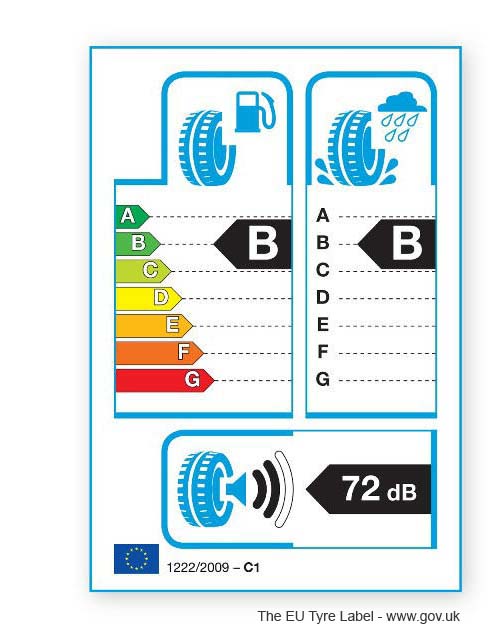The cost of fuel has fallen greatly over recent months. However for commercial motorists filling up a tank is probably still a significant chunk of their business’s expenditure.
Fuel has been consistently expensive for a number of years. In order to break even on their allowance motorists utilising company cars have grown used to having to maximise efficiencies.
Regulators and councils are also setting ever more strict emissions targets. All of which will have placed fuel economy and efficiency at the fore front of commercial motorists’ minds.
A survey carried out by RAC Business early in 2015 found that for 44% of 1,000 business fleet managers fuel economy was their prime concern of when purchasing new vehicles.
For that reason we thought we’d take a look at some alternative fuel efficiency practices that might be of benefit to commercial motorists who are intent on chopping their fuel bill down as much as possible.
Take Manufacturers MPG Claims with a pinch of salt ~ @Whichcampaigns
Technology can help drivers keep track of their fuel efficiency and vehicles themselves are becoming more sophisticated at self-monitoring. (90%) of company car drivers said they used their vehicle’s built-in dashboard or computer.
An independent test this year by Which? found that 98% of vehicles could not match or beat official miles per gallon (mpg) figures. Of the 200 tested all but 3 fell short by an average of 13%.
The results of tests demonstrates that the current procedures used by vehicle manufactuers to generate the MPG figures are clearly not reflective of real world driving.
Which? are campaigning for the EU to introduce much more stringent and standardised methods for formulating the MPG figures by 2017 rather than the slated 2020. In the mean time we suggest fleet managers should avoid basing your budget forecasts on these MPG stats.
Rev limiters lift a fleets’ fuel economy ~ @speedcontrols
If you’re a van operator you’d no doubt welcome a low cost way of generating a 25% improvement in fuel efficiency? The solution could be a vehicle rev limiter.
Tests by Autokontrol, a leading supplier of aftermarket limiters, demonstrated a 24.7% upturn in economy and a similar level of reduced CO2 emissions.
Rev limiters are relatively simple to install meaning very little downtime for the vehicle and the approximate £300 plus VAT installation cost is easily returned in fuel savings. If you’re potentially put off as you’re thinking you might swap vehicle in the near future the limiter can be removed and fitted to a replacement for around £90.
The amount of fuel saved using a rev limiter worked out at 5mpg for a Ford Transit 350 medium wheelbase, lifting it to 22mpg. Over a typical 3 year life cycle of a vehicle the savings could be in the £1,000s.
One of the consequences of a rev limiter is the reduction of a vehicle’s maximum speed. The Royal Mail fitted speed limiters on all of their HGV fleet vehicles and rev limiters on urban-based vans. Not only did they see a benefit to their fuel economy but equally as important was the improvement in driver behaviour.
If your light fleet is capable of performance levels that exceeded your needs, a retrospective rev limiter fitting could well be worth undertaking as part of your vehicle’s next scheduled service.
Telematics
Introducing the use of telematics or greater analysis of your telematics data could significantly improve your company’s fuel economy. Logic would dictate that if your employees knew the speed and driving style of their journey was being monitored by your business’s fleet manager then their driving behaviour would in all probability be smoother and in turn more efficient.
The RAC, saw huge savings in their fuel bill when telematics was rolled out across their fleet. This pattern will be repeated for other businesses of varying sizes.
Join the “How’s my driving” scheme ~ @Hows_MyDriving
If telematics is too great an expense or too much of a demand on your time than maybe you could consider a far more basic way of monitoring your driver’s behaviour behind the wheel?
The “How’s My Driving Scheme” scheme is a possible low cost solution and since launching claims to have seen a 22% cut in accidents and savings of 52% in associated costs for companies taking part.
Joining the scheme would demonstrate your company’s commitment to road safety as well as potentially reduce the cost of your fuel consumption by encouraging a more sensible driving style. In turn this measure would have the added benefit of reducing your fleet insurance costs by encouraging more responsible driving patterns which will reduce the risk of incidents occurring.
Photo source www.howsmy.co.uk
Vehicle remapping
On a similar note to rev limiters there could be significant environmental, financial and performance benefits to exploring the possibility of remapping your vehicle’s engine.
BT’s fleet has recently undergone throttle, rev, speed and power limiting processes. The measures are anticipated to help BT deliver savings of over £3 million across their 24,000 vehicles.
Like the rev limiters remaps can take place when vehicles head in for MOT’s and services. New remap files can be supplied in just five minutes.
Remapping firms such as Viezu Technologies claim vehicles can be mapped to deliver better fuel consumption and reduced CO2 emissions, while also improving vehicle driveability. The business case can be argued on the basis of a potential payback period of just three months.
Talking of mapping
Various studies over the years have estimated that the number of wasted miles driven by lost motorists mount up into the 100’s each year. Every unnecessary mile burns fuel, raises business overheads, harms the environment and potentially most damaging of all, costs time.
If your vehicle doesn’t already have one it may be worth fitting or upgrading your vehicles Sat Nav so that it can efficiently plan multiple destination trips or re-route dynamically.
Another important consideration when routing your journey could be your choice of fuel stop. A little bit of pre-planning may prevent you having to use motorway service stations. They may be convenient but you could end up paying an extra 8-10p per litre. Depending on the size of your tank that amount soon adds up into multiple pound signs.
Fuel efficiency could leave you hot under the collar
It’s well known that air conditioning systems can have a negative impact on fuel economy. However, there is an article on http://quickyclean.com/houston-auto-detailing/ with research by Emissions Analytics that revealed that fuel economy for hybrid vehicles compared to petrol and diesel models is far more severely affected.
Tests found that driving a hybrid with the air con on full reduced mpg by 6.1% on average almost double the down turn of petrol vehicles and nearly 50% worse than it was for diesels.
The impact of air con on hybrids was three times more severe during city based driving tests. It’s worth noting that the research was carried out in America where the climate reaches higher temperatures than the UK.
With many of the public and private hire insurance fleets with cover these days being required to purchase hybrid vehicles it could be worth fleet managers noting the impact. However open windows are also estimated to detrimentally impact on fuel efficiency by around 5% by increasing drag.
So short of recommending your drivers go topless there may be little option other than to take the hit on your fleet’s fuel consumption and turn the air con on.
Check your tyres

We all know that tyre pressure is a crucial factor when it comes to fuel efficiency. It’s said that if they’re 25% under inflated then fuel.
But are you aware of the importance of a “Tyre Grade Rating” to fuel consumption? Continental Tyres argue that the grade of tyre being driven can be almost as important an issue as inflation levels.
The tyre grading scheme provides the wet grip, stopping distances, noise and economy results on a colour-coded scale from green to red and a score from A to G. A is the highest score and G the lowest. However not all grades are used for each of the ratings.
Continental’s study revealed that the fuel efficiency difference between a set of tyres rated A and those rated G could be up to 7.5%. This equated to a saving of 80 litres of fuel during the life of the tyre (generally anticipated to be approximately 20,000-25,000 miles) – and at the time of testing (2012) equated to £440 per vehicle.
Obviously you’ll need to weigh up the upfront cost of the superior tyre but fuel efficiency could be an important buying consideration.
Fuel cleaner isn’t for fools
Commercial vehicle owners are being encouraged to investigate the benefits of fuel cleaning systems. Independent tests have shown improvements in both fuel economy and an engines power performance
It’s estimated the use of fuel cleaners such as Techron by technicians will to add £10-15 to the cost of a service. The cleaner is designed to, “dissolve carbon deposits in engines which can interfere with valve action and the flow and spray pattern of fuel injectors.”
Independent studies by Emmissions Analytics revealed the benefits included power output uplifts, significant CO2 reductions and fuel economy improvements of up to 8.7%.
Techron esimtated that for a vehicle averaging 40mpg that would equate to its efficiency rising to 43mpg and a saving more than £200 over the course of a 20,000-mile 12-month period.
For £10-£15 it might well be worth a experiment the next time your vehicle requires a service.

We hope these tips have proved useful and highlighted some areas that as a commercial motorist you might find potential savings.
If you operate smaller vehicles and can’t see the above methods working, you could always consider gravitating to hybrid technology in order to benefit from fuel costs as low as 6p per mile.
Unfortunately for many commercial fleet managers that operate HGVs this isn’t at present a realistic option.
If you have any comments or first-hand experience of the topics that have been discussed please let us know!
Plan Insurance Brokers offer specialist insurance covers for Taxi , Commercial Vehicle and Motor Trade businesses and operators. See how we can keep your business motoring.

